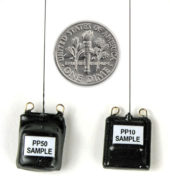
-
Filter products by Segment
- View All Products
-
Avian
-
Filter products by Technology
- Back
- Archival
- Radio
-
GPS
-
Select a Product
- Back
- DLC PinPoint GPS interface
- GoTel GPS Transmitters for Birds
- PinPoint Globalstar Solar Backpack
- PinPoint GPS Argos for birds & bats
- PinPoint GPS Argos Solar
- PinPoint GPS Beacon
- PinPoint GPS store-on-board loggers
- PinPoint GPS VHF
- PinPoint Solar GPS Iridium
- PinPoint Solar VHF download
- PinPoint VHF Commander
-
-
GSM
-
Select a Product
- Back
- GoTel GPS Transmitters for Birds
-
-
Globalstar
-
Select a Product
- Back
- PinPoint Globalstar Solar Backpack
-
- Argos
-
-
Freshwater
-
Filter products by Technology
- Back
- Radio
- Acoustic
-
Archival
-
Select a Product
- Back
- LAT1000 Series – Depth, Temperature
- LAT2000 Series – Light Geolocation
-
-
-
Marine
-
Filter products by Technology
- Back
- Archival
- Acoustic
-
Radio
-
Select a Product
- Back
- CART Series
- Core Marine Glue-On Series
- MCFT3 Series
- SRX1200
-
- Argos
-
GPS
-
Select a Product
- Back
- Crocodilian Argos + FastGPS Harness
- FastGPS Argos Series
-
-
-
Terrestrial
-
Filter products by Technology
- Back
-
GPS
-
Select a Product
- Back
- Activity Logger (ALOG)
- DLC PinPoint GPS interface
- Drop-off Mechanism for Lotek Collars
- GlobalstarTrack Pro LU, LC, LC PB
- GlobalstarTrack Pro S, M, L
- InSight Video Camera Module
- LifeCycle Pro 120 & 140
- LifeCycle Pro 330 & 500
- LiteTrack 140
- LiteTrack 20
- LiteTrack 20 Ear Tag
- LiteTrack 30 & 40
- LiteTrack 330 - 800
- LiteTrack 60
- LiteTrack Iridium 130 - 150
- LiteTrack Iridium 250 - 750
- MicroGPS+
- MicroLiteTrack 10
- MicroLiteTrack 5
- nCounter Contact Proximity
- nCounter Proximity
- PinnaclePro Series
- PinPoint VHF Commander
- Small WildCell
- Solar Ear Tag Series
- WildCell MG
-
-
Radio
-
Select a Product
- Back
- Activity Logger (ALOG)
- Biotracker VHF Receiver
- Coded VHF Radio Transmitters
- Core Glue-On Series
- Core Implant Series
- CTx Connectivity VHF tags
- Drop-off Mechanism for Lotek Collars
- InSight Video Camera Module
- LifeCycle Pro 330 & 500
- LiteTrack 140
- LiteTrack 20
- LiteTrack 20 Ear Tag
- LiteTrack 30 & 40
- LiteTrack 60
- LiteTrack Iridium 250 - 750
- MicroLiteTrack 10
- MicroLiteTrack 5
- nCounter Contact Proximity
- nCounter Proximity
- PIP Collars
- Small WildCell
- SRX1200
- TW-x Collars
- Ultimate Anti-Snare Collars
- Ultimate Lite Collar Range
- Ultimate V6C Series
- VHF Ear Tag Series
- VIT Series
- WildCell MG
-
- Globalstar
- Iridium
- Proximity
-
GSM
-
Select a Product
- Back
- nCounter Contact Proximity
- nCounter Proximity
- Small WildCell
- WildCell MG
-
-
- Technology
- News
- Publications
- Support
- Web Service
- Webinars
- Login
